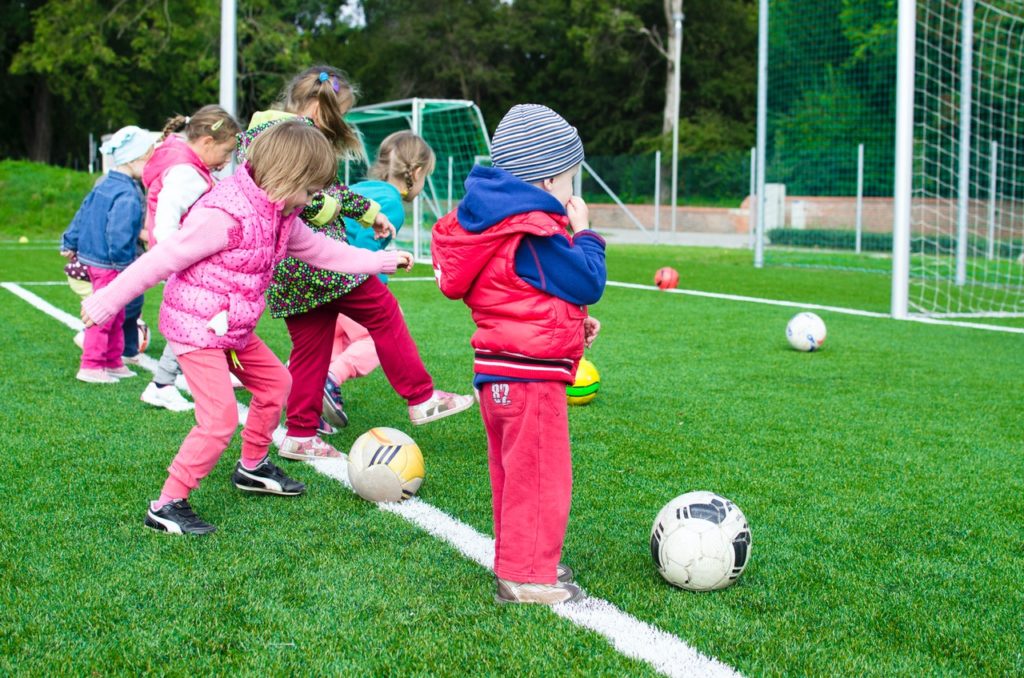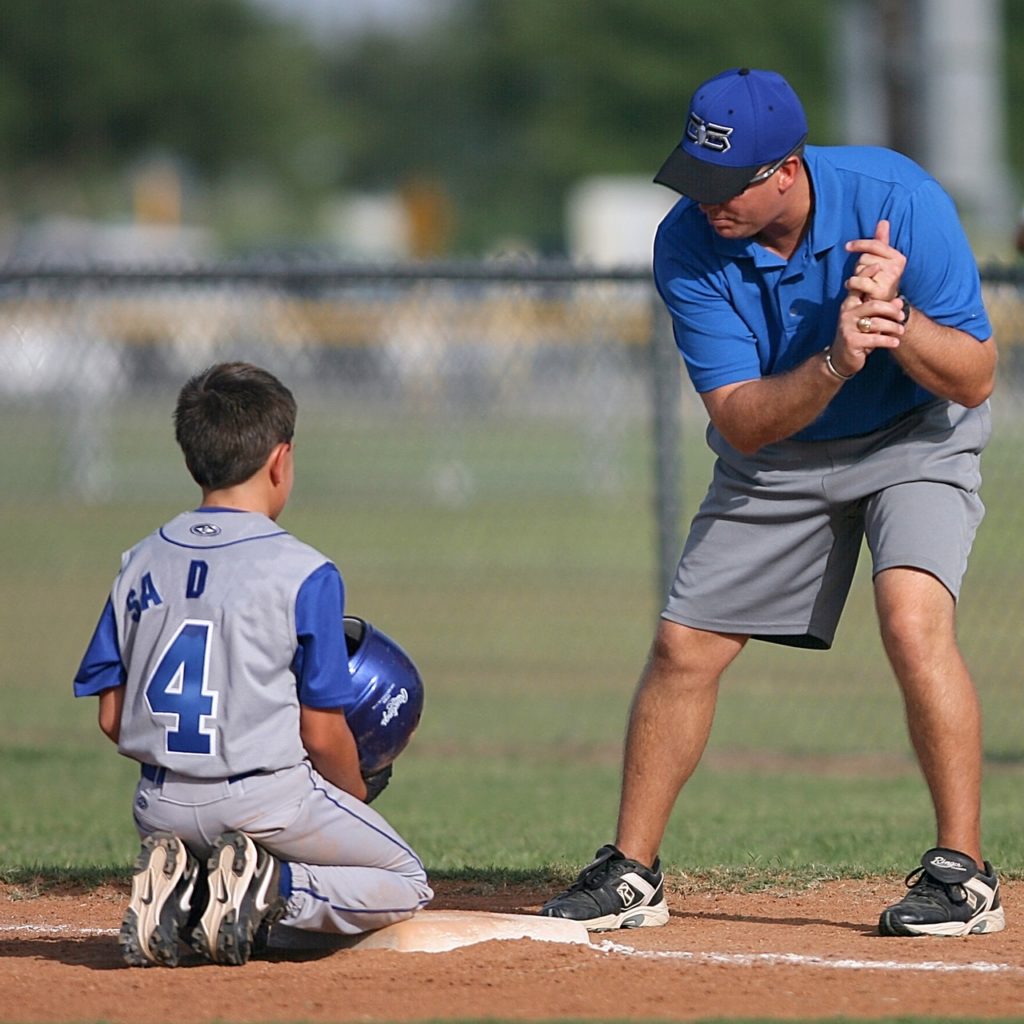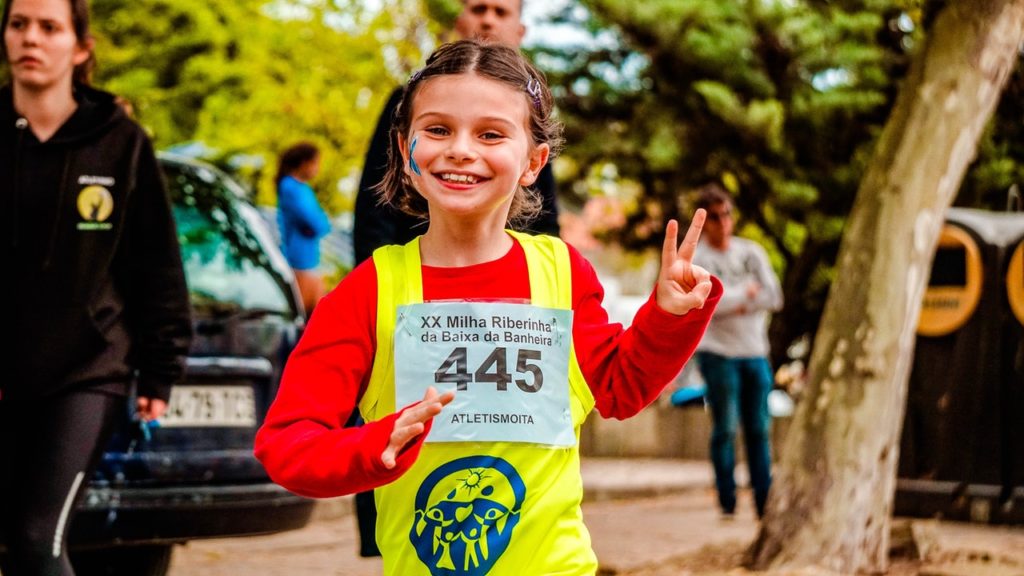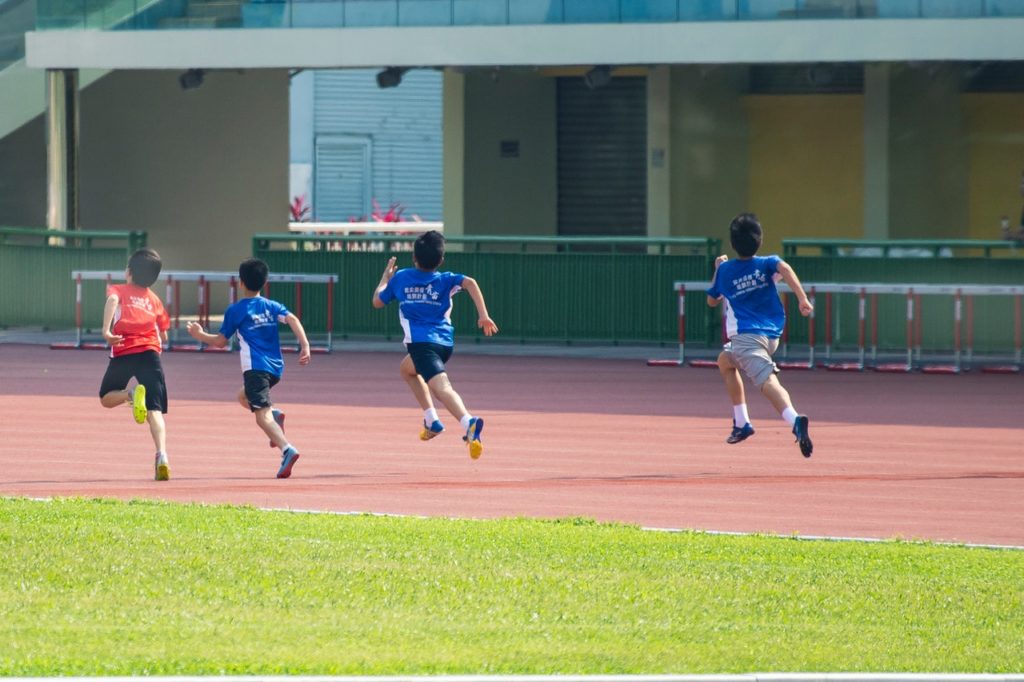A question that lingers in the minds of many parents is, at what age can you tell if the child is athletic? If your child loves playing sports at an early age, this is a good sign that he or she will be athletic as they grow up. Your child’s love of sports will make them enjoy workouts, games, and team practices which will lead to their body-transforming and become more athletic. With proper guidance and support, a child can be an outstanding athlete.
Ages 2 to 5 Years
Before reaching the age of 6, some kids may not have the basic skills for organized games or sports. This is due to their limited attention span and their ability to control their balance. Their vision also does not have the capability to track moving things at a good level because their sense of seeing hasn’t totally mature yet either. Kids at this age range might also have a short attention span so they learn best if they are able to explore, experiment, as well as copy others.
If you notice your child has these types of issues, search for sports that focus on basic skills that don’t require critical thinking. For example, swimming, running, catching, throwing, and tumbling are all things children at this age can do to start their fitness journey.
On the other hand, some kids in this age range can start playing organized sports without any problems. Introducing them to sports and making them play will help them develop athletic tendencies as time goes on.
Ages 6 to 9 years
Children ages 6 to 9 years old possess the necessary motor skills for organized sports. The only thing they might be lacking would be hand-eye coordination required to do complex motor skills. This might cause the child not to remember and understand concepts in games.
If that is the case, don’t worry because there are sports that can be played that require a minimum amount of motor skills like running or swimming.

Sports ideal for this age range includes Basketball, Baseball, Soccer, Running, and many more.
Sports that need motor skills and complex visual skills need the child to understand detailed techniques, teamwork, and quick decision making. Rules and regulations must also be flexible to motivate success, participation, and action because the children are still young.
The sport must concentrate on knowing new skills so the children can constantly keep learning. The rules and equipment must also be right for young kids.
For example, a smaller field or ball can be used so the children can have control and not be tired. Practices and games should be shorter. Modifications like these are what is needed.
Ages 10 to 12 Years
By the time they get to this age range, most kids are now ready for complex sports. Kids aging 10 and up have the cognitive ability and motor skills to play sports that require a lot of strategy and teamwork.
Many experts believe that sports at this age should focus on the development of skill, participation, fun, and not competition. Most kids would rather play more on a losing team than playing less on a winning team.
Some kids at this age might be beginning puberty so the physical disparities during this time, especially in boys, can be drastic. This could make a difference in what game is ideal for your little ones. A boy who begins puberty earlier will be temporarily stronger, heavier, and taller which will provide them a physical benefit.
One thing to remember about growth spurts would be that they can momentarily affect coordination and balance as the child gets taller and stronger. So in other words, growing at an early age might not seem that great after all.
Signs Your Children is Athletic
There are signs you can look for to see if your child is athletic. First of all, being considered athletic doesn’t mean having the best body or being the fastest.
An athlete is someone who can play a sport at a proficient level. That can range from team sports like basketball all the way to individual sports like swimming.
So if your son or daughter is involved in sports constantly, they can be considered athletes. As long as someone is physically active, the word athlete represents them perfectly.

Hand-Eye Coordination
Hand-eye coordination is a very vital skill that every athlete must-have. Sad to say, kids are born with void coordination and it is not until your kid reaches six months old that they will start to know the connection between touching and seeing.
These skills are essential to an athlete because being able to see an object as it moves quickly is very important in most sports. If you can see that your child is quick with their reactions, that can be a good indication of athletic tendencies.
Is Your Kid a Leader?
Many times, athletes will step up and be leaders in their respective sport when the time comes.
If you notice your child being a leader when playing sports, they will be most likely be athletic because if they are able to lead, that means they play this sport consistently which will translate into having an athletic body.
Tall Parents
A lot of athletes, most significantly at the professional level, are more than six feet tall which stems from genetics and their parents being tall.
If you and your significant other are taller than the average height, there is a good chance your child will also be above average in height which will help him become better athletes.
Courage and Bravery
Athletes have to be brave when competing in sports because it is not an easy thing to do. It is even harder when you are attempting things in a game that are difficult to do.
For instance, a football player who takes the challenge of guarding the best player on the opposing team or a basketball player trying to make a game-winner. Not being afraid to do the hard tasks in a game is something that all athletes have.
Determination
Is your child determined? Being an athlete requires determination and without it, they will give up when things get hard.
When your child fails and comes back even harder, this shows sign of strong determination which will serve them as time goes on.

Fast Learner
Does your little one pick things fast and quickly? Does he or she learn things in an instant? Being a fast learner is a superb attribute for being an athlete.
Learning essential things like using the proper form when playing sports or knowing certain plays in a game vital for athletic success. A good example would be a volleyball player watching an expert’s technique and they try to mimic it right after.
Competitive Nature
Being competitive is very ideal for athletes. This is the reason why many athletes set goals. They wish to be stronger, faster, and bigger, all in anticipation of beating the opposing team or player. It drives the kid to play at their best level and to always put in 100% effort. It also makes the child take more risks in the game.
Sense of Balance
Being able to have strong balance is a sign of athleticism. Balance is essentially the capability to be in control of your body movements. An example would be a swimmer doing a butterfly stroke without breathing. In order for her to be in control of her body while also moving freely, she needs to have good balance.
Helping Kids to Bring Out the Athleticism in Them
After you can tell that your child is athletic, there are ways to help develop their athleticism more by doing things such as:
1. Strength Training
This type of training is easy and simple. The kid’s body weight is an acceptable level of resistance to support the development of muscle mass and healthy bones.
They can be doing bodyweight exercises like pushups, sit-ups, and pullups. If you wish to implement more strength and conditioning exercises like weight lifting, make sure you do the proper research on restrictions and safety guidelines to ensure the safety of the child while they are training.
2. Endurance
Every kid can develop endurance and it is a vital aspect to develop when playing any type of sport. Depending on the age, they can jog or play at the park to stay conditioned.

Building up stamina is very important because sports will require a lot of energy to play with full effort. If you notice your child going the distance when engaging in their physical activity, he is considered athletic.
It is vital to be conscious when pushing a kid because going too far can result in negative results like developing fear or dislike of physical activity.
3. Motivation
A big factor that all athletes need is motivation. It’s what drives us every day to do what we do. If you have a child who is playing a sport, make sure you motivate them and be on their side because any motivation from loved ones will make the child try their best.
4. Nutrition
Another factor that comes into play when becoming an athlete is what food goes into your body. Athletes need to have a healthy diet because it is required when participating in physical activity. A good mix of proteins, carbohydrates, veggies, and fruit will do the trick.
Many times, kids might not want to eat these types of foods so making it as flavorful as possible will make the child eat without having any problems.
Final Thoughts
Knowing what age your child is athletic comes with many different factors. Being an athlete consists of not only physical strengths but also mental. The first step to take would be to introduce them to a sport when they are young. An example would be teaching your young child how to dribble a basketball.
It takes time and dedication to become an athlete so time will tell when it comes to finding out if they have athletic abilities. If your child wants to pursue athletics, it is important that they are consistent and dedicated to the sport they are playing in.
This is not an easy task to achieve so if you notice that your child has athletic tendencies like the ones stated above, they are on the right track to becoming exceptional athletes.
So when the question gets asked about what age can you tell if the child is athletic? Remember that there are many different factors that determine that and not just a simple answer.
